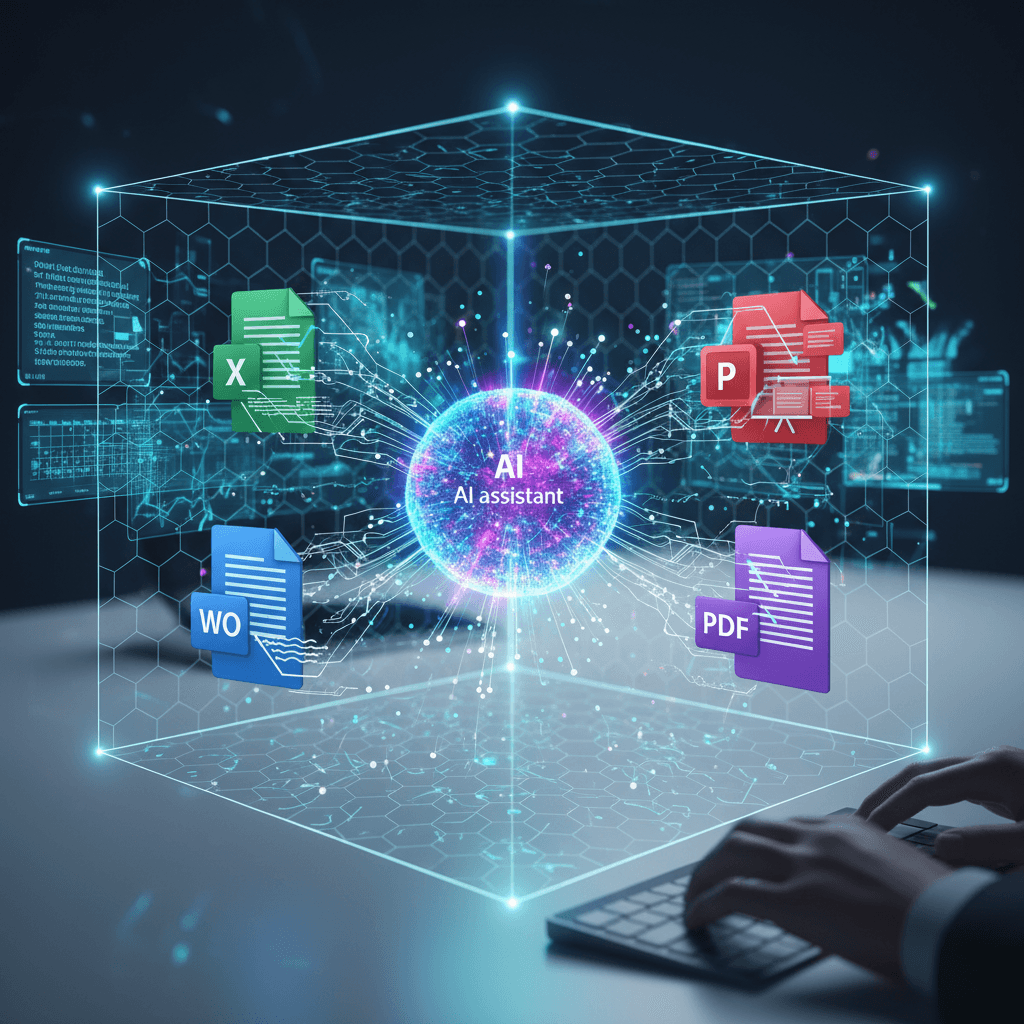Anthropic Unleashes Agentic Claude: AI Now Creates and Edits Files
Embracing 'agentic' AI, Claude evolves into a proactive digital collaborator, directly creating and editing critical business files.
September 10, 2025

Anthropic's AI assistant, Claude, has evolved beyond its conversational roots, gaining the ability to directly create and edit a range of common file types, fundamentally changing its role from a passive advisor to an active digital collaborator. The new capabilities allow users to generate and modify Excel spreadsheets, Word documents, PowerPoint presentations, and PDFs directly within the chat interface, transforming complex, multi-step tasks into simple conversational requests. This leap forward positions Anthropic in a heated race to define the future of workplace productivity, equipping Claude with "agentic" skills that allow it to not just provide information, but to perform tangible work and produce ready-to-use digital assets. The update signifies a pivotal moment for AI assistants as they become more deeply embedded in professional workflows, aiming to automate and accelerate the creation of everything from financial reports to client-facing presentations.
The new functionality is powered by giving Claude access to a private, sandboxed computer environment where it can write and execute code, primarily in Python and JavaScript, to construct and manipulate files.[1][2][3] This technical underpinning is what transforms a user's natural language prompt—such as "analyze this sales data and create a slide deck summarizing the key trends"—into a downloadable PowerPoint file.[4][5][2] This represents a significant evolution of Claude's previous "Artifacts" feature, which allowed users to see and interact with AI-generated content like code snippets within a dedicated window.[6] While Artifacts created a dynamic workspace, the new update makes the output far more practical by allowing users to download the final products as standard .xlsx, .docx, .pptx, or .pdf files, which can be saved to a local computer or directly to Google Drive.[1][2] This enhancement is being rolled out as an experimental feature preview to subscribers of Claude's Max, Team, and Enterprise plans, with Pro users expected to receive access in the coming weeks.[7][8][3] The maximum file size for both uploads and downloads is currently limited to 30MB per file.[1][9]
This shift toward creating tangible outputs is a clear demonstration of the industry's push toward "agentic AI," where models are empowered to act as agents that can reason, plan, and use tools to complete complex objectives.[10][8][11] Rather than simply generating text, Claude now functions as an assistant that can perform a sequence of actions, such as cleaning raw data from an uploaded CSV file, performing statistical analysis, generating charts and visualizations, and compiling all the findings into a polished report.[2][3] The use cases for business and research are extensive. A marketing team could upload survey results and receive a comprehensive PowerPoint presentation with key findings, a detailed PDF report with an executive summary, and an organized Excel workbook.[5][6] In finance, users can ask Claude to build financial models with working formulas or generate budget templates with automated dashboards.[5][2] The tool can also streamline cross-format work, such as converting a lengthy PDF document into a concise presentation or turning scattered meeting notes into a formally structured Word document.[5][2] This move toward executing tasks shrinks the gap between an idea and its execution, turning hours of manual labor across multiple software applications into a focused conversation with a single AI tool.[12][3]
The introduction of these capabilities places Anthropic in direct competition with OpenAI's ChatGPT and its powerful Advanced Data Analysis feature, formerly known as Code Interpreter.[9] Both platforms now offer a similar core function: a sandboxed environment where the AI can write and execute code to analyze data and generate files.[9] Analysts have noted key differences that could influence user preference depending on the task. Claude's environment has the ability to install additional Python packages and comes with Node.js pre-installed, offering greater flexibility for certain development and data science workflows.[9] Conversely, ChatGPT's tool boasts a significantly larger file upload limit of 512MB compared to Claude's 30MB, a crucial advantage for users working with large datasets.[9] This intense competition is accelerating innovation in the enterprise AI space, where the ultimate goal is to create a seamless, AI-powered workflow that can augment or even automate large portions of knowledge work, challenging the dominance of traditional office productivity suites.[13][7]
However, empowering an AI with the ability to execute code and access the internet to download software packages introduces important security considerations. Anthropic has acknowledged that these powerful features could potentially be misused if manipulated by a malicious prompt, leading to risks such as the execution of untrusted code or the leakage of sensitive data from the conversation.[1][7] To mitigate these risks, the company has implemented several safeguards. The file creation feature operates within a secure, sandboxed environment, and users must explicitly opt-in to enable it.[1][14] Claude is designed to provide user-friendly summaries of its actions, and users can stop the process at any time, emphasizing the need for human oversight.[1] Furthermore, Anthropic has limited the duration of tasks the AI can perform to prevent malicious loops and has disabled the public sharing of any conversations that contain file artifacts.[1] These measures reflect a broader industry challenge: balancing the rapid expansion of AI capabilities with the critical need for safety, security, and user control.[13]
In conclusion, Anthropic's decision to arm Claude with file creation and editing tools marks a significant inflection point in the utility of large language models. By moving from a conversational partner to a productive work engine, Claude is now positioned to tackle a wide array of practical business tasks, from data analysis to document preparation. This embrace of agentic capabilities intensifies the competitive landscape, pushing the boundaries of what AI can achieve as a genuine productivity tool. While navigating the inherent security challenges remains a crucial responsibility, the trajectory is clear. The gap between describing a task and receiving a completed, ready-to-use file is rapidly disappearing, heralding a future where AI assistants become indispensable and proactive collaborators in the modern workplace.
Sources
[2]
[4]
[6]
[8]
[10]
[11]
[12]
[13]
[14]